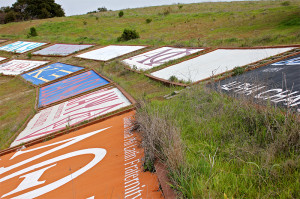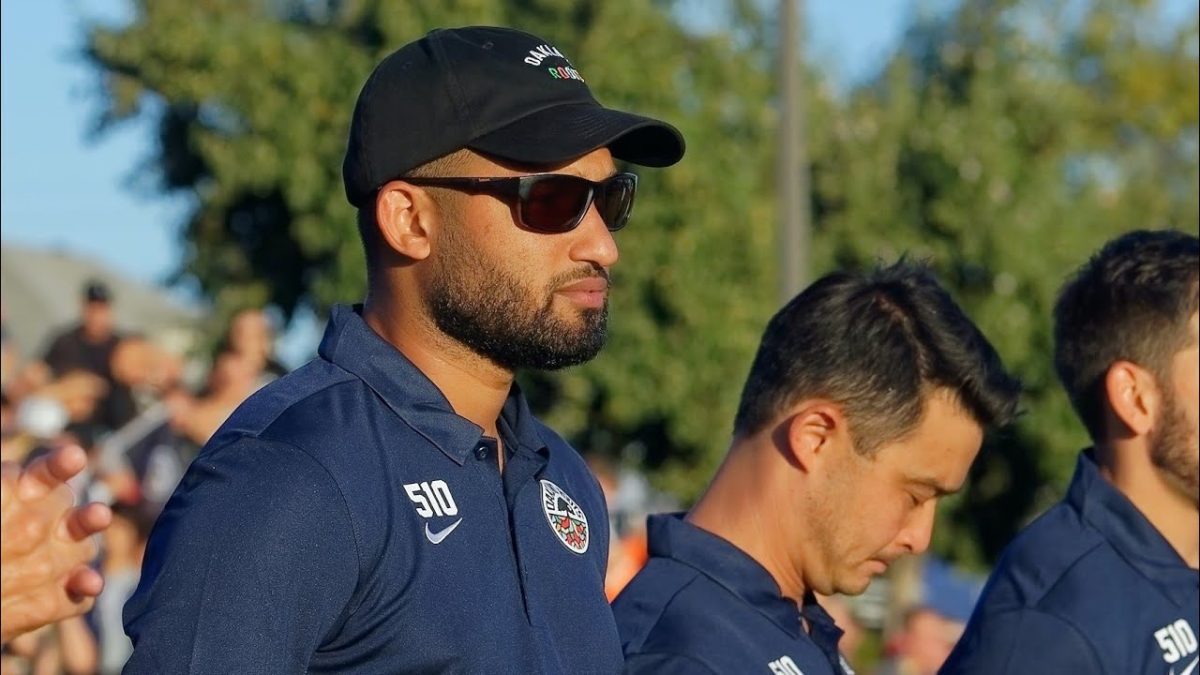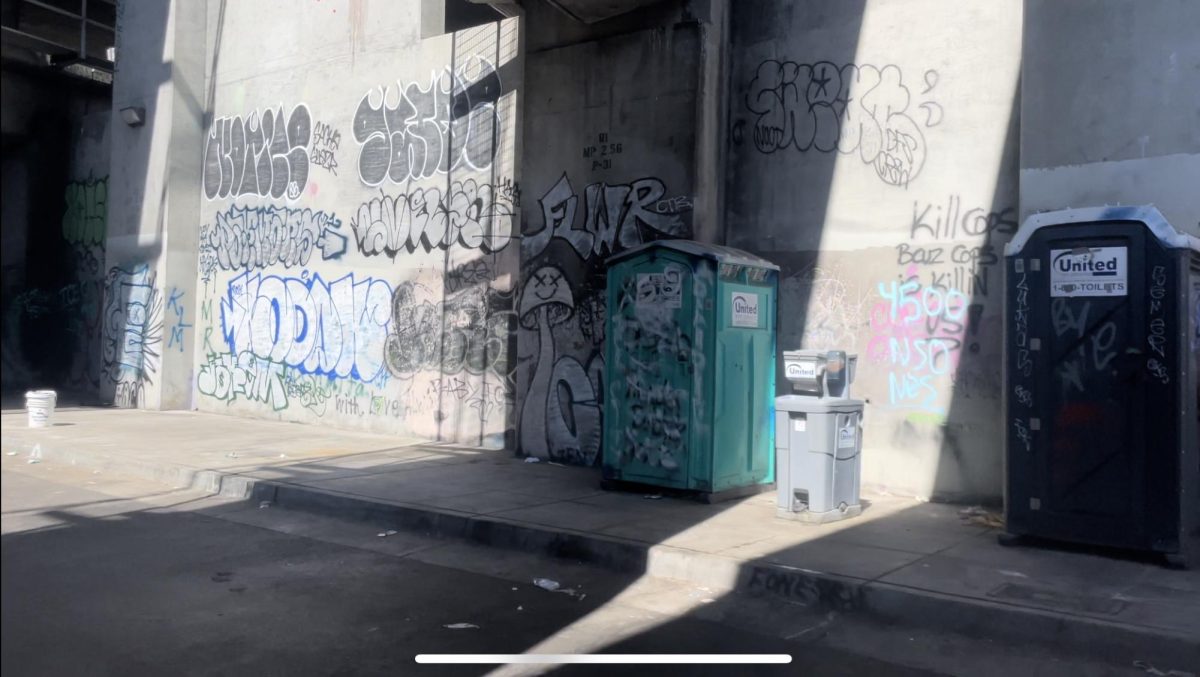
painted over Feb. 11 after losing its charter for
“repeated violations.”
The oldest national Greek fraternity at CSU East Bay, Delta Sigma Phi, is no more.
At the beginning of February, DSP saw its charter revoked by its national organization and its official recognition by the university “rescinded.” By Feb. 11, the sign displaying their greek letters above the university was painted over.
According to Stan Hebert, associate vice president of Student Affairs, the university “rescinded” its recognition of the 33–year–old fraternity due to “repeated and numerous violations of the regulations of the university.”
The allegations include “hazing, alcohol, [and] drug related conduct,” according to Hebert.
According to the official guidelines for CSUEB Greek letter organizations: “Withdrawal of recognition is an action intended for chapters which have not met University standards, for chapters involved in extraordinary violations of University expectations (e.g. hazing, property damage, severe behavioral excess) or at the request of the national organization.”
DSP was previously suspended in 2011 due to “alcohol related problems,” according to Ryan Phillips, the last acting President of DSP.
In response to the suspension DSP made “drastic changes” to its policies and procedures, according to Phillips. The fraternity was nearing the end of its post-suspension probationary period when it received notification that it was being shut down.
Phillips contends the university is punishing the current chapter for violations allegedly committed “four, five, six years ago.”
Additionally, Phillips believes that his fraternity is being punished because of a personal “vendetta” held against DSP by the former director of the Office of Student Development and Judicial Affairs, Carol Nowicki, who retired early February.
Hebert dismissed the vendetta argument, explaining that Nowicki’s job was to oversee and mediate issues regarding student conduct, and that blaming her overlooks the fact that DSP’s issues were repeated and endemic.
Nowicki could not be reached for comment.
Although Hebert would not comment on specific dates or examples of violations, he did confirm that some of the violations happened recently, since the changes DSP made during the suspension.
“Because of the investigation, we stirred up a lot of people, parents to talk,” said Hebert. “We’re still getting reports from family members, students, [and] witnesses.”
Hebert said the case against DSP includes a collection of “tapes, recordings, texts, photographs [and] videotapes.” Hebert said he could not share evidence or details of particular incidents in order to protect the victims and witnesses.
Phillips said he has not seen the evidence against him and as a result has been unable to mount a proper defense against the accusations.
“Part of the reason why were are having so much trouble dealing with this whole situation is purely because we have never been able to defend ourselves or examine the evidence that is against us,” said Phillips. “If we don’t know the evidence than we can’t face our accusers properly.”
Hebert disagreed, saying the fraternity was in fact involved in the investigation and was asked about every single incident that allegedly happened. Furthermore, Hebert argued, unlike a court of law, student organizations don’t have the right to cross examine the witnesses.
According to the the official guidelines for CSUEB greek letter organizations, DSP can appeal the decision, but, according to Marguerite Hinrichs, director of the Student Life and Leadership Office, DSP cannot appeal the decision because their charter was revoked by their national organization.
The Delta Sigma Phi national organization refused to comment on the specifics of the case, but in an email, Patrick Jesse, executive director at DSP said “the Grand Council of Delta Sigma Phi closed the Zeta Omicron chapter” because it “failed to meet minimum established standards.”
“Delta Sigma Phi does not condone or tolerate illegal behavior, substance abuse, or hazing in any form by our members,” said Jesse. “At times we must remove the privilege of fraternity when a group of men consistently fails to meet those agreed upon standards.”
Despite their decision to revoke the charter, the national office did allow “each individual active member” to “go alumni,” according to Phillips, who explained that, although DSP is no longer an officially recognized fraternity at CSUEB, “we can still function as an alumni organization separate from the school.”
“Our goal is to remain strong within the community and keep a strong presence,” said Phillips, “and we will keep our ideals strong until we come back on campus, until we have that opportunity.”

















